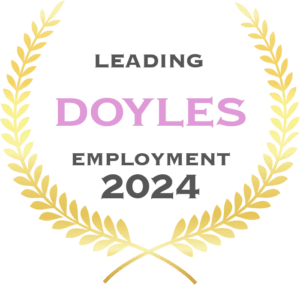
The Respect at Work reforms represent a pivotal shift in Australian workplace legislation, heralding a new era of accountability in combatting sexual harassment at work.
The reforms impose a positive duty on employers to eliminate sexual harassment, and confer employees with greater protections and avenues for legal recourse.
In this guide, we explore the details of the reforms, their implications for workplace culture, and the practical steps organisations can take to ensure compliance.
Background on Respect@Work Reforms
Sexual harassment in the workplace has been a persistent problem that has damaged lives, careers, and organisations. It can take various forms, such as inappropriate jokes or comments, unwanted physical advances, the dissemination of sexually explicit materials, and sexual assault.
Unfortunately, individuals who experience sexual harassment at work frequently face obstacles to coming forward, including the fear of retaliation, embarrassment, and the belief that their employer will not take them seriously. As a result, a pervasive culture of tolerance for sexual harassment has developed in some workplaces, with many individuals enduring such behaviour without taking any action.
To address the problem, the Australian Human Rights Commission published a report that made 55 policy and legislative suggestions for preventing and addressing sexual harassment in both the public and private sectors.
In December 2022, important changes to the Sex Discrimination Act 1984 came into effect, along with legislation that amended the Fair Work Act 2009. The objective of implementing these changes together is to prevent and address the problem of sexual harassment in the workplace.
Employers to Address Workplace Sexual Harassment
Under changes to the Sex Discrimination Act, a person conducting a business or undertaking (which includes employers) is under a positive duty to take reasonable and proportionate measures to prevent sexual harassment and other forms of sex discrimination and unlawful conduct.
This duty extends beyond the confines of internal operations, covering interactions with third parties such as contractors, clients and customers.
Proactive Measures to Cultivate a Respectful Workplace
To meet the new legal obligations and foster a respectful workplace, we recommend organisations adopt a series of proactive strategies:
- Leadership Modelling: Leaders must exemplify the behaviours that reflect the organisation’s commitment to a harassment-free workplace. This sets a cultural precedent and establishes clear expectations for conduct.
- Data-Driven Insights: Regular reporting to the Board with anonymised data on incidents can highlight systemic issues and inform targeted interventions.
- Inclusivity Initiatives: Strategies promoting gender equality and inclusivity can significantly reduce the incidence of harassment and discrimination.
- Policy and Training: A robust policy framework, coupled with comprehensive training programmes, ensures that all staff members are aware of their responsibilities and the mechanisms in place for intervention and support.
- Human-Centred Responses: When addressing reports of misconduct, a human-centred approach ensures that the processes are respectful and victim-focused.
- Organisational Justice: Following an unbiased investigation of misconduct allegations and a fair disciplinary process helps support just outcomes for complainants and respondents.
- Balancing Confidentiality and Transparency: Rethinking the role of confidentiality terms in resolutions can foster a culture of openness and respect.
Expanded Powers and Protections
The reforms also broaden the powers of the Australian Human Rights Commission (AHRC) and the Fair Work Commission (FWC), enabling them to more effectively address and prevent sexual harassment in the workplace.
The Respect@Work reforms comprise amendments to both the Fair Work Act and the Sex Discrimination Act. This integrated legislative framework ensures that organisations that fail to take reasonable steps to prevent workplace sexual harassment matters may face enforcement actions and civil remedies that may include declarations, compensation and pecuniary penalties.
The Role of the AHRC and FWC
- AHRC’s Monitoring Role: With the ability to issue compliance notices, the AHRC will have the power to actively investigate and enforce a person’s duty to eliminate sexual harassment and other discriminatory conduct. These powers came into force on 12 December 2023.
- FWC’s ‘Stop Sexual Harassment’ Orders: The FWC can issue orders to prevent ongoing sexual harassment, providing an urgent remedy to victims and a legal restraint upon harassers.
Fair Work Act Changes
It’s now unlawful under the Fair Work Act for a person to sexually harass another person if that second person is a worker, seeking to become a worker at a particular business, or a person running a business.
The prohibition has been in place since 6 March 2023, 2023. ‘Worker’ is defined to include employees, volunteers, and contractors.
In addition, if a sexual harassment dispute arises, a worker, workers jointly, or their union can apply to the Fair Work Commission to make a “stop sexual harassment order” or to resolve the dispute. If the Commission can’t resolve the dispute, it will issue a certificate allowing a party to take further action in court.
Sex Discrimination Act Changes
In addition to the positive duty provisions, the Sex Discrimination Act now also expressly prohibits a person from subjecting another person to a work environment that is hostile on the grounds of sex – which can take many forms, including witnessing another person who is:
- Making sexual jokes or comments
- Displaying sexually explicit materials in the workplace
- Making threats or spreading rumours based on a person’s sex or sexual orientation
- Singling out individuals for unfair treatment or exclusion based on their sex
The test is whether, taking into account all the circumstances, the behaviour is likely to be seen as resulting in a workplace environment that is offensive, intimidating, or humiliating based on a person’s sex.
This involves considering the seriousness of the conduct, whether it was continuous or repetitive, and the seniority of the person engaging in it.
Where an employer can’t show that they took reasonable steps to prevent a hostile workplace environment, they’ll be held vicariously liable for the unlawful conduct of the employee or agent who engaged in the sexually harassing behaviour.
Essential Actions for Compliance and Cultural Transformation
Organisations must be diligent in reviewing and updating their internal processes to align with the new reforms. The following steps are crucial in supporting the prevention of sexual harassment and discrimination:
Policy and Procedure Overhaul
The overhaul should involve conducting a thorough review of all current policies and procedures and revising them to ensure they are consistent with the new laws. The revised policies and procedures must be comprehensive, clear, and actionable in order to effectively address issues of systemic unlawful discrimination and harassment in the workplace.
Comprehensive Staff Training
These mandatory training sessions need to be regularly updated and delivered to ensure that all employees are educated on sex discrimination and harassment, and the consequences for engaging in unlawful behaviour.
Management and Supervisor Preparedness
Specialised training must also be provided to managers and supervisors to equip them with the tools and knowledge to handle and respond to any claims or complaints promptly and effectively.
Work Health and Safety Assessments
These assessments should analyse factors such as workplace gender composition, any gendered trends, and the implications of policies like work travel requirements. The goal is to recognise possible risks early so that preventative action can be taken.
Employee Support Services Evaluation
It is crucial that support services are easily accessible, completely confidential, and provide appropriate support to affected individuals. Enhancements may be needed to ensure the system effectively serves employee needs in difficult situations.
Key Takeaways
- The Respect at Work reforms represent a major shift in Australian workplace law, imposing positive duties on employers to take reasonable measures to prevent sexual harassment and discrimination.
- Under the reforms, employers can be held liable for failing to take proactive steps to eliminate unlawful sex discrimination. Strategies like leadership modelling, training, and human-centred response protocols are now imperative.
- The reforms expand the powers of the Australian Human Rights Commission and Fair Work Commission to better address workplace sexual harassment through compliance notices, orders, and dispute resolution.
- Compliance requires organisations to overhaul policies comprehensively, deliver staff training, assess workplace risks, and evaluate support services for affected employees.
To ensure full compliance, strategic legal advice is essential. Workplace lawyers can provide guidance on:
- Conducting a comprehensive review and overhaul of policies, procedures, and training
- Implementing reasonable preventative measures proportional to risk
- Handling complaints and investigations appropriately
With this legislation now in effect, legal expertise is key to navigating obligations and cultivating a respectful workplace culture.
Contact us today to find out more about how we can help you.
FAQs
What are Some Reasonable and Proportionate Measures Employers Can Take To Prevent Sexual Harassment?
Reasonable measures may include implementing a sexual harassment policy, providing regular training to staff, having clear complaint procedures, ensuring managers model appropriate behaviour, conducting risk assessments, and taking action against inappropriate conduct. The key is taking proactive, proportionate steps tailored to your specific workplace.
How Does Respect@Work Change the Complaint Process for Sexual Harassment?
The Respect@Work reforms give the Australian Human Rights Commission stronger powers to investigate sexual harassment complaints in workplaces. It can issue compliance notices to employers and refer matters to the Fair Work Commission if issues remain unresolved. The FWC can make binding orders to stop harassment immediately.
What are the Penalties For Non-Compliance?
The Australian Human Rights Commission can issue compliance notices and commence proceedings for alleged breaches of the Sex Discrimination Act.
Additionally, contravening the prohibitions in the Fair Work Act can result in penalties per contravention of up to $82,500 for corporations and $16,500 for individuals. Compensation may also be awarded for any loss or damage suffered.
Failing to eliminate sexual harassment risks breaching work health and safety laws as well. This exposes organisations to the risk of investigation and enforcement action by health and safety regulators, and may lead to prosecutions and the imposition of fines.
Apart from enforcement actions, non-compliance poses legal, financial and reputational risks to organisations.
How Often Should Organisations Provide Training on Sexual Harassment to Meet the Act’s Requirements?
The Sex Discrimination Act does not mandate a specific training frequency. Training should be regular and proportional to risk for new starters, managers, high-risk areas, and when policies are updated. If there has been an incident of sexual harassment in the workplace, it’s recommended to consider refresher training. In any case, annual refresher training for all staff is recommended best practice.
What Does Alleged Unlawful Discrimination Mean?
Alleged unlawful discrimination refers to a claim or complaint that an individual or group has been subjected to treatment that is prohibited by anti-discrimination laws.
Specifically, it means someone believes they have experienced less favourable treatment based on certain personal characteristics, such as sex, race, age, disability, religion, or sexual orientation. This could involve being denied a job, promotion, or workplace opportunity, dismissed, harassed, or otherwise disadvantaged.
The alleged discrimination is termed “unlawful” because, if proven, it would constitute a breach of anti-discrimination legislation. However, the claim is described as “alleged” at this stage as it is yet to be substantiated or ruled upon by the relevant tribunal or court.











